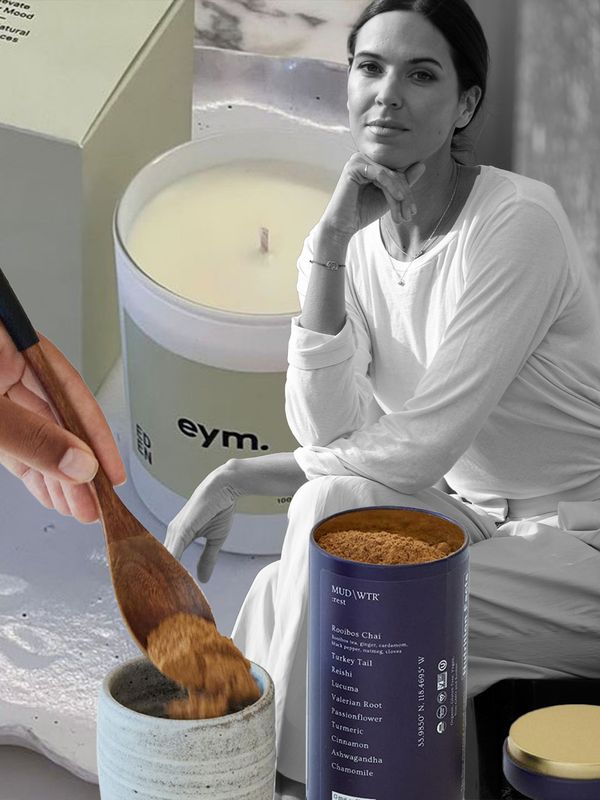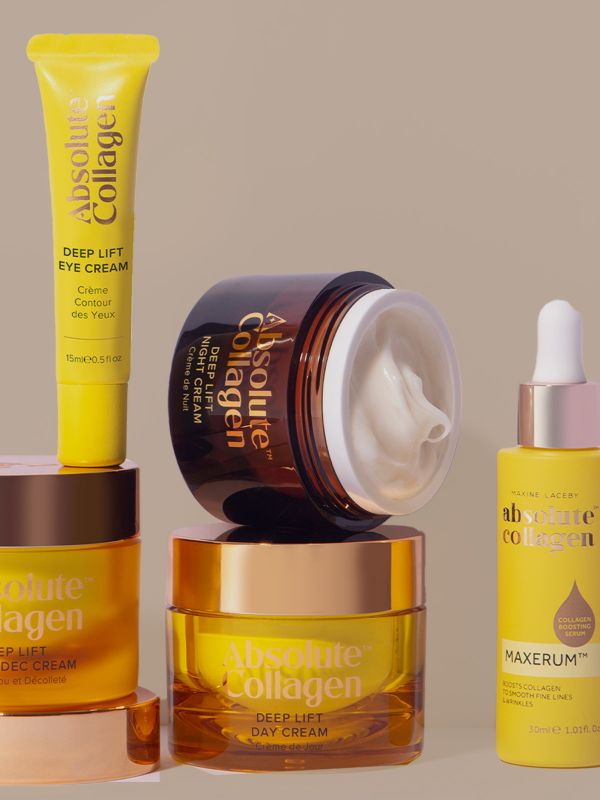

How To Find The Right Therapist
Know Your Options
The most effective way to access free therapy is to chat to your GP, who will most likely refer you to your local IAPT (Improving Access to Psychological Therapies) programme. According to the NHS, 75% of people referred to IAPT services start treatment within six weeks of a referral. As Jo Love, trainee psychotherapist and mental health advocate, tells us, “Many of these services have their own websites, too, so you can actually refer yourself directly rather than having to go through your GP. They offer what is known as a stepped service, based on what level of support you need. It may be that you’re offered some guided self-help with accountability from a wellness practitioner, as opposed to traditional face-to-face therapy.”
However, Jo adds that due to the overstretched, under-funded nature of the system, the support you receive is likely to be time-limited and there may also be a cap to the number of times you can receive support for the same issue. While a more expensive option, going private is also possible. Cost aside (private therapy can be anywhere from £10 to £100+ an hour), you will be able to choose the type of therapy, whereas free therapy options on the NHS can be more limited.
Chat To Your Employer
While it’s not a legal obligation for your employer to help you with mental health support, it’s always worth a chat, as some employers do provide free counselling. “This is known as an employee assistance programme (EAP),” Jo explains. “Ask your HR department if this is something they offer. The programme can provide short-term mental health care, referrals and financial advice. This is particularly important if your mental health is making it hard for you to attend or return to work. Of course, this isn’t always an option, but very often such schemes aren’t clearly promoted, so it’s worth asking.” Jo adds that it’s also worth checking with a private medical insurance provider, as mental health can be covered by some policies.
Keep An Open Mind
If you do decide to go private, there’s no doubt finding a therapist can be a minefield and trawling through endless Google searches of therapist profiles only adds to the confusion. Plus, how are you to know whether you’re better suited to CBT, psychoanalysis, hypnotherapy or psychotherapy?
“There are hundreds, if not thousands, of different types of therapy out there, which is great as it means there’s always help available, but it can make the notion of therapy feel overwhelming,” says Jo. “Certain therapies are recommended for certain issues, although all therapies do have things in common – they’re all ways of understanding how someone ticks, and what might help them change. Plus, therapists will often draw on several approaches at any given time – even within the same session they may use a variety of techniques and methodologies. Arguably, the type and form of therapy is actually less important than whether the therapist’s way of working feels right for you. And the only way you’ll know this is by doing your own research and giving one a try.”
Go Online
Online service WellDoing is a good place to start. Instead of merely connecting you with therapists in your postcode, the site matches you to the experts, taking account of preferences such as culture, gender and experience. Jo also recommends the Counselling Directory, UKCP, BACP and Harley Therapy. “The Free Psychotherapy Network is a brilliant website that contains lots of low-cost or free options, including a database of therapists who offer free psychotherapy to people on low incomes,” she tells us.
If you’re still not sure, visit Self Space, the first on-demand therapy service on the UK high street. With spaces in Shoreditch, Borough, Brighton and Manchester, it aims to make mental health support accessible to all. “Therapy is an investment, and you want to make sure you have the best chance of finding the right professional,” says co-founder Jodie Cariss. “At Self Space, you can speak to a community manager (a real human, not a bot), to find help on matching with a therapist and discipline, and ask as many questions as you like before booking.”
Check Licensing
A therapist should be accredited by a governing body. The two main governing bodies in the UK are the BACP (British Association for Counselling and Psychotherapy) and the UKCP (The UK Council for Psychotherapy). There’s also the National Counselling Society and the British Psychoanalytic Council. A therapist will need to have practised for a set amount of time (usually three years) and have written case studies to be accredited. “It’s very important you do this research, as using the term ‘therapist’ isn’t regulated,” says Jo. “Anyone can call themselves a therapist without any qualifications whatsoever.”
Give It Time
Don’t expect miracles overnight. “Anecdotally, a very general rule of thumb is most people see a therapist for roughly six to 20 sessions,” says Jo. “The UK National Institute for Health and Care Excellence (NICE) guidelines for moderate to severe depression suggest NHS trusts should offer patients 16-20 sessions of therapy.” Different forms of therapy may work more quickly than others, adds Jodie. “For example, CBT is often an initial six-week programme whereas deeper psychotherapy that explores your past and present is better suited to a longer-term approach.”
But how long should you stick with therapy before accepting it’s not right for you? Jodie says you’ll have a feeling either way after at least three sessions. “During your first three sessions, your therapist will be assessing where you are and what you need – these are key times for information gathering, including your family history, what support you have in place and any confirmed mental health diagnoses.”
Understand The Relationship
While it’s important to feel comfortable with your therapist, remember they’re not there to be your best friend. “Therapy isn’t always comfortable, but you should be aiming to feel comfortable enough with your therapist to be able to open up to them and be vulnerable for the work to happen. It’s totally okay if this takes a little bit of time to show itself, but positive signs include a comfortable conversational rapport, an impression they genuinely care about understanding you, and a sense you’re respected and safe,” says Jo.
Jodie’s Top Tips For Starting Therapy…
It’s Not Always Going To Be Enjoyable: “Like going to the gym, more often than not, completing a therapy session feels better than the actual ‘going’. It’s not uncommon for things to get worse before they get better, but put the work in and you’ll feel better in the long term. Push through the discomfort and you will arrive at a much clearer place.”
Try Writing Your Thoughts Down: “A therapeutic hour (sessions tend to be 50 minutes) can be over in a flash, so it can be a good idea to write down what you want to talk about ahead of time. This can help when you feel nervous or unsure in early sessions. You may not cover it all, but structure can help.”
You’ll Benefit From Clearing Your Diary: “Put your phone on silent, tell anyone who may need to contact you that you’ll be unreachable for a bit, and don’t schedule anything for immediately after your appointment. You may need some time afterwards to decompress – even half an hour can help.”
You Don’t Have To Be Unwell To Start Therapy: “Therapy doesn’t always have to be a reaction to illness. It can be an active engagement in wellness. Prevention is much easier than reaction. Being in therapy will give you the tools to better your relationships and better deal with challenges when they come up.”
For more information, read the official NHS advice on mental health, or contact one of the following organisations:
Mind
Open Monday to Friday, 9am to 6pm, 0300 123 3393
Samaritans
Offers a listening service which is open 24 hours a day, on 116 123 (UK and ROI, this number is free to call and will not appear on your phone bill)
Rethink Mental Illness
Offers practical help through its advice line, 0300 5000 927, open Monday to Friday, 10am to 4pm
Hub Of Hope
The UK’s leading mental health support database, connecting you with mental health support local to you
Jo Love’s new book, Therapy Is… Magic, is out now. For more, visit JoLove.co.uk and follow her on Instagram @Jo_Love_. To book an appointment at Self Space, visit TheSelfSpace.com – appointments start from £60 for 30 minutes.
DISCLAIMER: Features published by SheerLuxe are not intended to treat, diagnose, cure or prevent any disease. Always seek the advice of your GP or another qualified healthcare provider for any questions you have regarding a medical condition, and before undertaking any diet, exercise or other health-related programme.
DISCLAIMER: We endeavour to always credit the correct original source of every image we use. If you think a credit may be incorrect, please contact us at info@sheerluxe.com.























